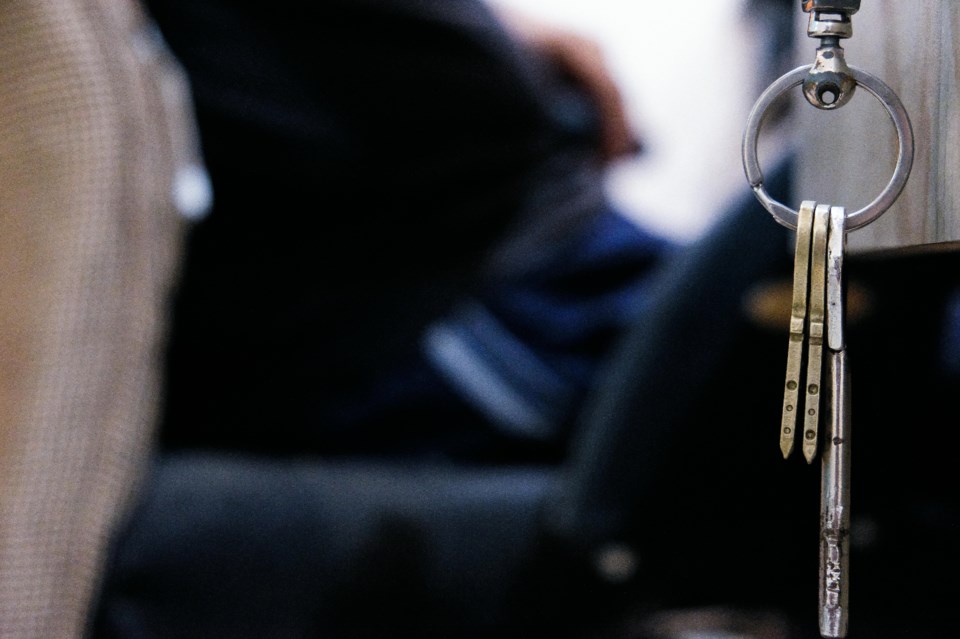The city is set to take a longer look at controlling short-term rentals (STRs) in Barrie.
Sitting as community safety committee Wednesday evening, councillors asked city staff to investigate STRs measures such as complaint-based enforcement, zoning, permits or licences, and Official Plan restrictions.
Mayor Alex Nuttall said Barrie’s annual increase in STRs is double-digit, but solutions must show balance.
“We have a line to walk and the line to walk is helping the residents, at the same time as not making it difficult to choose to come and vacation in Barrie,” he said. “There’s something here that probably should be done and could be done, and I don’t think we should walk away and do absolutely nothing.
“At the same time, I don’t want to try to use too big of a hammer that we actually end up hurting ourselves both monetarily and also the community as a whole," Nuttall added.
Barrie does not specifically regulate STRs, such as Airbnb-type properties.
Councillors spoke to both sides of the argument last night.
“We have a couple of bad actors … but we end up having to regulate in some way the whole industry in order to deal with a couple of bad actors,” said Coun. Clare Riepma. “I’m a bit reluctant on the regulation side, but we definitely have to do something because the status quo is not acceptable.”
But Coun. Gary Harvey said there are simpler solutions.
“We need to deal with a couple of bad actors, as opposed to legislating our way through it, as it’s going to create a whole whack of red tape," he said.
Harvey, the city’s finance and responsible governance committee chairman, said STR regulation could also risk the city’s agreement with Airbnb, a deal which generated $269,000 in municipal accommodation taxes (MAT) last year.
Kathleen Trainor, executive director of Tourism Barrie, said the city should not regulate STRs, because it would be very expensive for taxpayers.
But she said a type of licensing could be an option.
“You can have an Airbnb if you live at the house,” Trainor said. “You’re not going to allow garbage, noise, drugs being done if you’re living there.”
Coun. Bryn Hamilton, who said she has a number of STRs in her Ward 10, said complaints include noise, mischief, property damage, unattended fires and parking.
“A blanket solution might not be what we’re going for,” she said. “We don’t want to penalize everybody, but how do we start licensing, regulating, fining those poor behaviours?”
Coun. Amy Courser said Barrie could become an island if there is no STR regulation.
“There are communities all around us working on … regulations and the registering of short-term rentals, and we are not," she said. "I have great concerns about how much that number (of STRs) might go up, because we are not keeping an eye on them as this point.
“They are businesses. These people are using these places as a business," Courser added.
City staff have already identified ways the city could regulate STRs — by its zoning bylaw, its business licensing bylaw, the fees bylaw and even through the potential development of a short-term rentals bylaw itself.
Ontario’s Ministry of Tourism, Culture and Gaming identified 503 STRs in Barrie as of last December. Staff also said the property count is steadily growing, year-over-year.
The distribution of STRs in Barrie shows 65 to 66 per cent of available listings are for houses and 46 to 48 per cent of available listings have one bedroom. And of the total amount of STRs in Barrie between May and December 2024, it’s estimated that between 368 and 400 are houses, and 114 to 124 are apartments.
Only a small number of STRs have received complaints, brought to the attention of city staff and members of council. Through municipal law enforcement, staff determined from June 2023 to December 2024 only five STRs complaints were received and all were in relation to two STRs properties.
Staff also reviewed, through Service Barrie, from October 2023 to December 2024, only two STRs complaints and received 11 inquiries.
STRs complaints are managed by the city, Barrie police, Barrie Fire and Emergency Service (BFES), Airbnb and other internet-based accommodation sharing platforms.
City bylaws which impact STRs include parking, property standards, burn permits and noise.
Barrie police do not have data specific to STRs, while BFES reports six complaints were received from July 2022 to December 2024, specific to open air burning for an STRs property. Violations were found in three of the cases.
But Hamilton noted that because of the different ways STRs complaints can be made, and whether the complaints actually are about STRs, these numbers are suspect.
The City of Toronto, for example, defines a short-term rental as all or part of a dwelling unit rented out for less than 28 consecutive days in exchange for payment. This includes bed-and-breakfasts, but excludes hotels and motels.
A short-term rental company facilitates or brokers short-term rental reservations online and receives payment for this service. All short-term rental companies are required to obtain a licence to operate in Toronto.
Short-term rental operators are people renting their homes or rooms on a short-term basis, for a period of less than 28 consecutive days.




